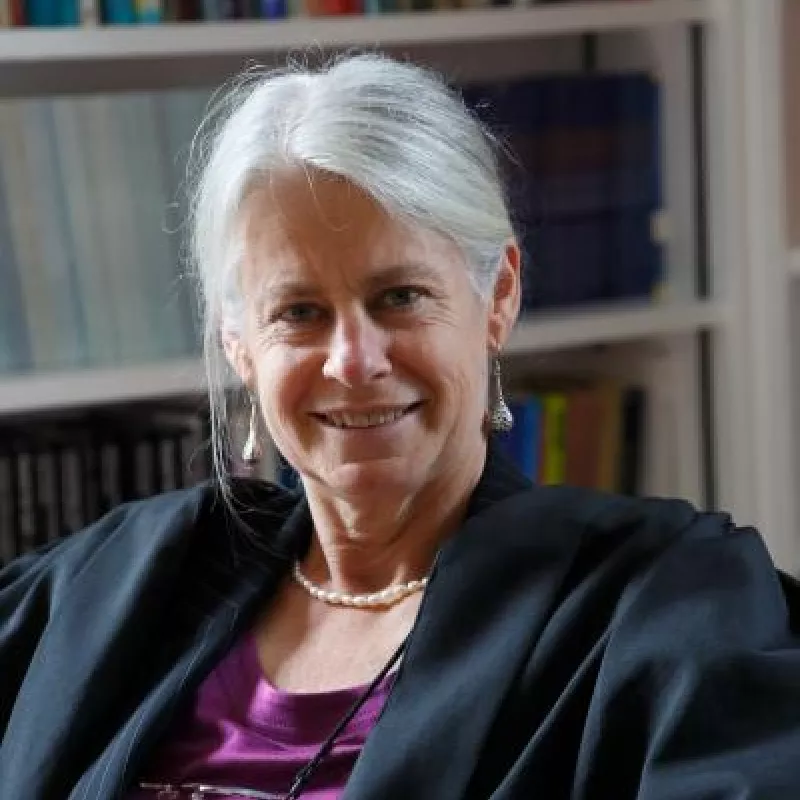Professor Nicola Padfield
Former Master (2013-2019)
-
Role
Emeritus Professor of Criminal and Penal Justice at the Law Faculty
-
Research
Criminal law, criminal justice and sentencing
-
Awards, Degrees, Honours
DES,MA
Professor Nicola Padfield KC (Hon), MA, Dip Crim, DES was Master of Fitzwilliam College from 2013-2019.
Nicola Padfield is Emeritus Professor of Criminal and Penal Justice at the Law Faculty, University of Cambridge, and has been a Fellow of Fitzwilliam College since 1991. She held a number of posts in the College as well as Master: these included President, Director of Studies, Tutor and Admissions Tutor. She retired from the University in October 2022.
After her first degree at St Anne's College, Oxford she came to Cambridge (Darwin College) to study for the Diploma in Criminology. Called to the Bar in 1978, she then spent a year at the University of Aix-Marseille and married Christopher (who read Engineering at Fitzwilliam and graduated in 1971). Her teaching and research has covered a broad canvas in criminal law and evidence, sentencing and criminal justice more generally. She sat as a Recorder (part-time judge) in the Crown Court from 2002-2014, is a Bencher of the Middle Temple and served as the University Advocate for several years. She was appointed as Honorary Queen's Counsel in 2018.
Her books include ‘The Criminal Justice Process: Text and Materials’ (5th edition, 2016); ‘Criminal Law’ (10th edition, 2016), and ‘Beyond the Tariff: Human rights and the release of life sentence prisoners’ (2002). She has edited and contributed to a number of more recent collections of essays on parole and early release (which has involved research in a number of European countries). Whilst maintaining a wide academic lens, her recent research has explored how the law on release from, and recall to, prison works in practice, and how it is perceived by offenders and those who work in the system. This under-researched area provides an important contribution to the understanding of how offenders are best supported in their attempts to desist from criminal life-styles, and how the rehabilitation and resettlement of offenders can be better encouraged. She is also working on a project measuring the effectiveness of coroners’ inquests in reducing the number of deaths of people in custody and under probation supervision.

